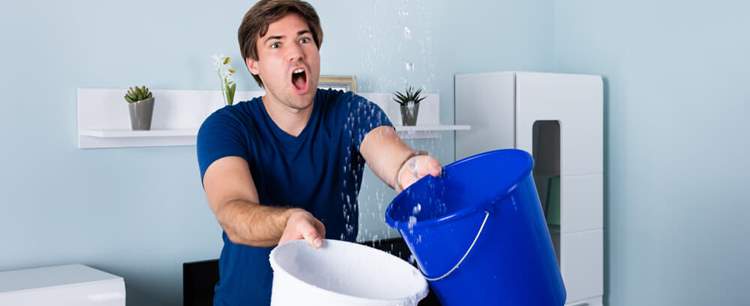It’s a nightmare to wake up or come home to find that an escape of water – from a burst pipe or some other plumbing failure – has flooded your home. If you live in a flat, it’s a nightmare that you might well inflict on neighbours who live below.
Yet loss and damage caused by an escape of water is one of the most common reasons for claims on home insurance and landlord insurance policies – it was reported that it is the second most common reason for all household claims and that its incidence has shot up by 24% in recent years.
Minimising the risks
So, what steps might you take to minimise the risk of an escape of water claim in your flat?
Locate your stop-cock
- if there is one single piece of vital information you need to know, it is the location of your stop-cock – which cuts off the water supply to the whole of your flat – insists the Water Safe organisation of locally approved plumbers;
- knowing where and how to quickly shut off the water supply may save untold damage being caused – so, if you are a landlord, make sure your tenants also know that this is the first thing to do in an emergency;
Where’s the leak?
- having advised any tenants how to turn off the supply at the stop-cock, remind them that leaks may come from a whole host of places – all of which are worth keeping an eye on;
- it might be a leaking washing machine, dishwater or some other domestic appliance, for example – an escape of water most commonly associated with these sources;
- a bath or shower that has been left unattended and overflowing;
- frozen pipes which then burst; or
- some accidental damage to pipes within the flat;
Preventing leaks and minimising the damage
- maintenance of the water systems in the flat in good order is a duty shared by you and any tenants you might have;
- you both need to keep an eye open for tell-tale signs of damp from pipes, radiators or appliances;
- the flexible hoses on washing machines, dishwashers and other appliances may work loose and are especially vulnerable, so need to be checked regularly;
- prevent sinks, basins and drains from becoming blocked and overflowing;
- if you notice – or a tenant reports – a dripping tap, make sure you arrange for the washers to be replaced; and
- arrange the regular servicing of any boiler – if it’s a gas-fired boiler, you might make it a part of the annual inspection and check by a Gas Safe-registered engineer which the law requires you to have done in any let property;
- in the wintertime, if you are a homeowner going on holiday or a landlord with a tenancy void, turn on some background heating – to maintain an ambient temperature. Check your buildings insurance policy’s terms and conditions for the minimum required temperature;
- if the property is going to be empty for rather longer, consider draining down the water systems completely.
Finally, invest in smart water detectors and water cut off devices. They can spot even the smallest change in your water consumption and alert you to the issue. If this is fitted, make sure you (or your tenant) know who it automatically reports suspected issues to.
An escape of water in a flat may cause even more than the usual amount of loss or damage. To minimise the need to make a claim on your home or landlord insurance policy, consider these ways of preventing the accident happening in the first place.



